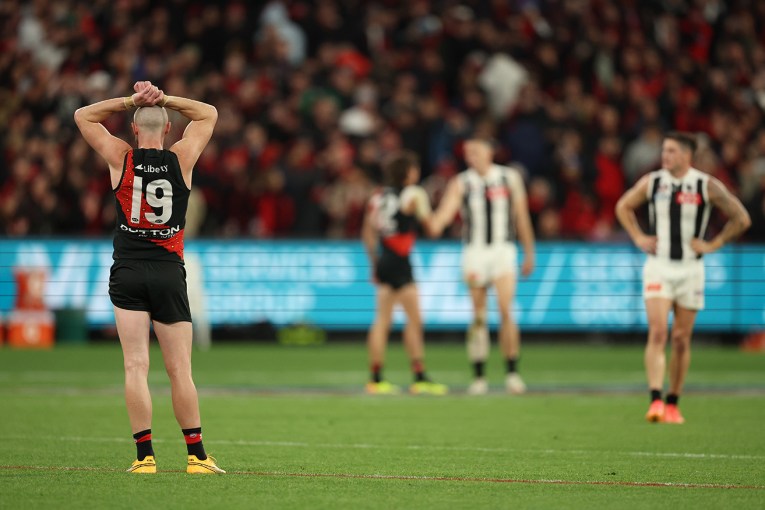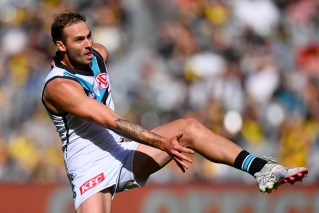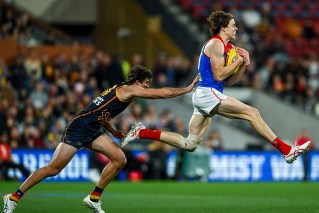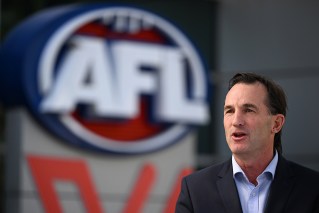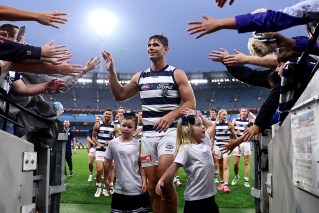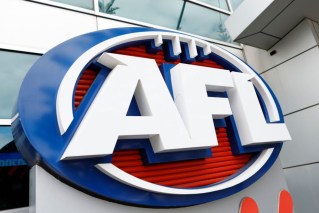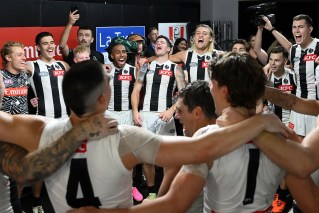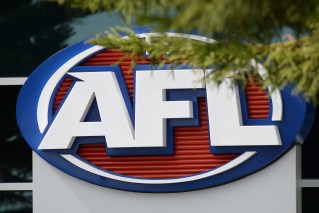Leading between the lines, co-captaincy is about sharing the load

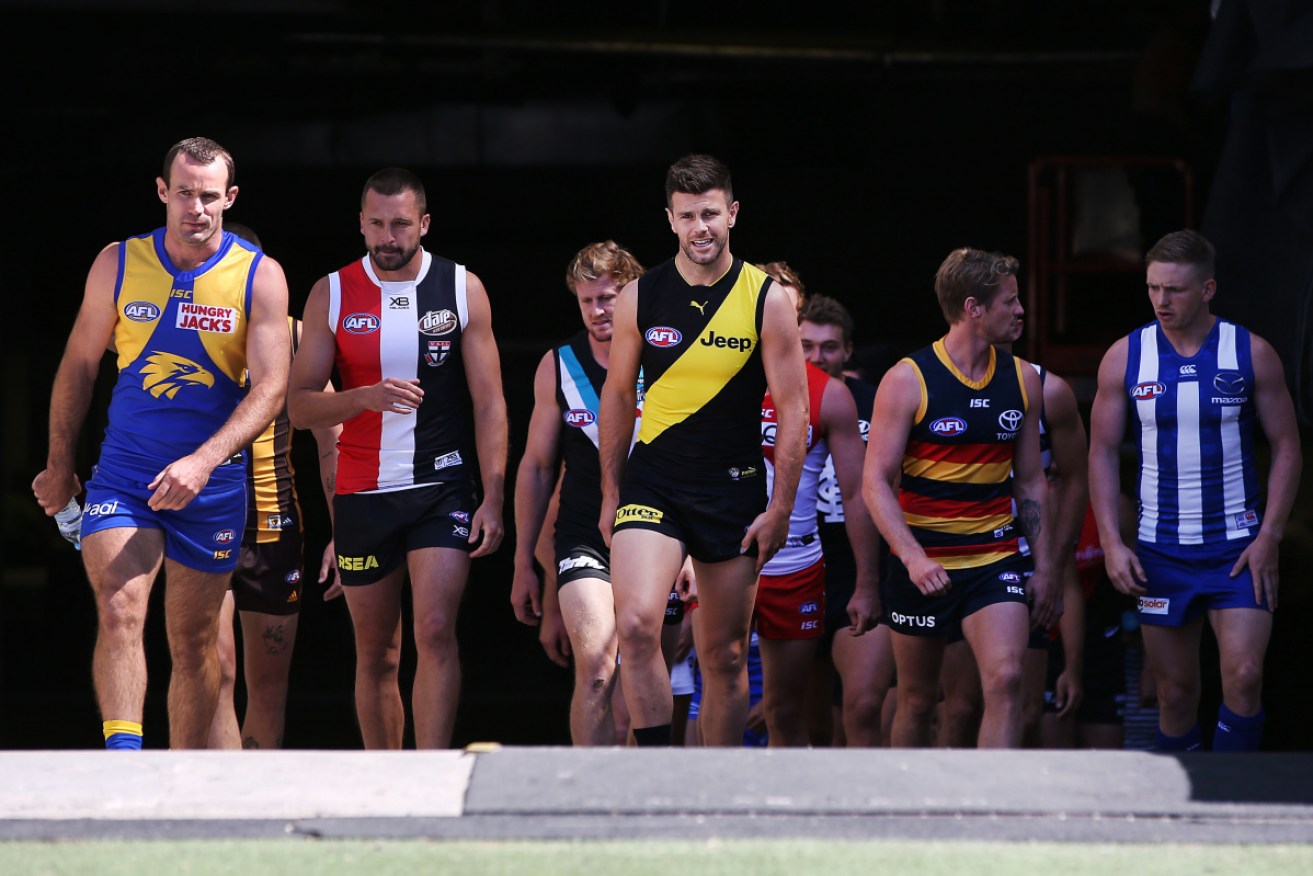
A serious business: Club skippers have the weight on their shoulders, but you'd hope they enjoy their footy. Photo: Getty
Across the 18 AFL teams this year we have a league-record 27 captains.
Seven teams have gone with co-captains, with Sydney choosing three players to lead their team.
Rather than this number reflecting the importance of captaincy, it is actually a clear sign that the days of the captain may soon be over.
The reason is simple: The job is too big for just one man. It’s actually getting so big you don’t need one at all.
Josh Kennedy, Dane Rampe and Luke Parker will co-captain the @sydneyswans in 2019: https://t.co/yKx1AV8ZMj pic.twitter.com/EaKLDUlri0
— AFL (@AFL) December 14, 2018
Let me explain why.
These days we expect our leaders to have empathy, to be authentic, to be vulnerable, to communicate equally with millennials, married men, free spirits and intense footy heads.
We also require them to do things like ‘design and embed a culture that will increase the likelihood of attaining the team’s mission and vision’.
They must do all this while ensuring they maintain their playing form in the most scrutinised era of football that has ever existed. That’s a huge job.
Obviously some men like Joel Selwood can do it and do it well. It’s obvious the Cats walk taller when he’s the one leading them down the race.
Touch wood it doesn’t happen, but what if Joel goes down for an extended period?
The team, which is used to strongly following one leader, would be forced to follow an inferior leader. This is less than ideal.
Celebratory lunch for our boy Sammy today after he informed us he has had bit of interest from the @GoldCoastSUNS for his services, he has decided to extend his contract with the @geelongcats for another 12 months! All this on “World Down Syndrome Day”, how good.@DownSyndromeVic pic.twitter.com/JNQpiIX7gR
— Joel Selwood (@joelselwood14) March 21, 2019
The way around it is to not have one leader to follow but expect everyone to lead in their own right.
Additionally, players are now responsible for managing their arousal levels, and this has caused the death of the pre game rev-up speech.
By rights this should also render redundant the need for the ‘captain’s goal’ or ‘inspirational act’ to spark a team into action.
While these acts are great to witness, the obvious answer is just because you are called a ‘captain’ it shouldn’t make you more determined to do such inspirational deeds. It’s everyone’s responsibility, not just the captain’s.
Now it kills me to say this one, but the average player is now ‘football smarter’ than they used to be. Before you old players throw a fit, try to look at it reasonably.
In the old days our plan was simply kick it to ‘Plugger’ – as fast and as often as you could. Modern footballers spend much of their week in meetings perfecting offensive and defensive structures along with learning a whole bunch of tactics, set plays and perfecting their craft.
Does it not make sense then to utilise this new-found intelligence?
We can do this by giving them licence to make decisions and to think for themselves without being told what to do by the coach or indeed a captain?
The main problem with a sole leader is that other players relinquish too much responsibility to the captain. They sit back and let him take the lead on and off the field.
Removing the captain will create a leadership vacuum that forces multiple players to step up.
This won’t be an issue if you’ve picked the right men for your team and trained them well.
It will be an issue if you’ve picked poorly or don’t spend time teaching leadership to all your players.
At worst, elevating one player above the rest stifles the majority or simply allows them to hide behind their captain.
At the Saints VFLW team this year we have broken with tradition and we won’t announce a captain.
Our five-person leadership group will share the ceremonial duties like tossing a coin and leading the team on to the ground.
Truth be told, it is only a league mandate to name a captain that stops some clubs from doing away with one designated captain altogether.
It’s only a matter of time before one of them is brave enough to put the needs of their team before tradition.
Nathan Burke is a former St Kilda captain who played 323 AFL games for the Saints, winning three Trevor Barker Awards as best-and-fairest player.
